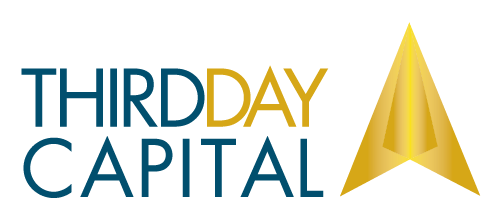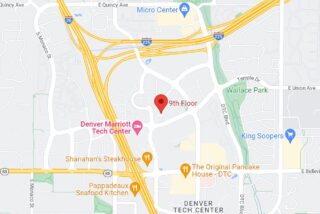 Covid19 is a big problem for many small businesses, which often lack the financial resources to withstand a prolonged revenue slump. In an effort to ensure the Covid19 outbreak doesn’t become an economic depression, the U.S. Federal Government passed the CARES Act, which includes a $349 billion provision for small businesses, defined as those with 500 or fewer employees. We prepared this synopsis for our business-owner clients and are happy to share it with you.
Covid19 is a big problem for many small businesses, which often lack the financial resources to withstand a prolonged revenue slump. In an effort to ensure the Covid19 outbreak doesn’t become an economic depression, the U.S. Federal Government passed the CARES Act, which includes a $349 billion provision for small businesses, defined as those with 500 or fewer employees. We prepared this synopsis for our business-owner clients and are happy to share it with you.
The first thing you need to know about the resources available: they are first-come, first-served. Although applications can be submitted right now through the Small Business Administration’s website directly (https://sba.gov), the SBA has authorized its local lending network of banks, credit unions, and other lending institutions to begin processing applications on its behalf using the established guidelines starting on Friday. Applying through your local financial institution, with which you already have a relationship, will result in receiving a decision and funds quicker, even though the window doesn’t open until Friday. The SBA is encouraging businesses to apply through their local lending institution specifically for this reason.
The CARES Act contains four separate programs for small businesses: 1) Paycheck Protection Program (PPP), 2) Economic Injury Disaster Loans and Loan Advances, 3) SBA Debt Relief, and 4) SBA Express Bridge Loans. Qualifying businesses have 500 or fewer employees and are not engaged in federally illegal activities (no Pot shops, according to our reading of the guidelines), gambling, pornography, agriculture, or lobbying.
Independent contractors and sole proprietors are eligible for the programs, as are other forms of entities with 500 or fewer employees: private non-profits or 501(c)(19) organizations, cooperatives, ESOP’s, or tribal small businesses. Agricultural cooperatives, nurseries, or other businesses with more than 500 employees that are small under the SBA Size Standards are also eligible.
The Payroll Protection Program (PPP) – The PPP is designed to encourage small employers to retain their employees by providing a 2-year loan at 0.5% interest, whereby loan payments are deferred for 6 months. If at least 75% of the proceeds are used for payroll expenses (company sponsored health care included), the loan will be forgiven. The other 25% can be used for rent, utilities, and mortgage interest. No collateral or personal guarantees are required, and neither the government or lender will charge any fees for the application or the loan. Loan forgiveness is based on the employer retaining all its employees at their current salaries, or quickly rehiring them at their previous salaries. Forgiveness is reduced if full-time headcount is reduced or salaries / wages are reduced. Applications can be made through any SBA 7(a) lender, FDIC insured depository institution, federally insured credit union or Farm Credit System institution that is participating.
Economic Injury Disaster Loans / Loan Advances – The EIDL is an existing SBA program designed to provide small businesses impacted by disasters the capital needed for various expenses. In previous disasters, the loans could be used for any business expenses such as payroll, rent and utilities, but the PPP makes this program more useful for businesses that also need capital for working capital needs, such as inventory replenishment, making payments to vendors for accounts payable balances, making loan payments, etc. Loans are made at 3.75% annual interest rate (2.75% for non-profits), can have maturities as long as 30 years, and can be made for up to $2 million. With the CARES Act, applicants can apply for a $10,000 loan advance under this program, which would be forgiven.
SBA Debt Relief – The SBA will pay the principal and interest payments of any existing 7(a) loans for six months and will pay the principal and interest of new 7(a) loans issued prior to September 27, 2020 for six months.
SBA Express Bridge Loans – A lending facility for small businesses with pre-existing relationships with SBA Express lenders. It will provide up to $25,000 with less paperwork than the EIDL. They can be used as either a term loan or as a bridge loan to help the business with short-term working capital needs until their EIDL application is processed, accepted, and funded.
It’s important to note that if a company applies for and receives funds under the EIDL for the purposes of paying payroll and/or payroll support, it is not eligible to receive funds under the PPP. In other words, the two programs are mutually exclusive. As a result, while the PPP is the preferred program to apply for, it may not sufficiently cover all business expenses in cases where non-payroll expenses and working capital needs are likely to exceed cash on hand / anticipated cash flow.
We recognize that each business will have its own unique characteristics that make the decision about whether to apply for assistance, which program to apply for, and how much to apply for different for each business. Making these determinations will require some financial analysis, budgeting, and financial projections. We encourage you to reach out to your financial advisor for assistance with these programs and making these decisions. And of course, if you don’t have a financial advisor to reach out to, we’d be happy to discuss your situation. Feel free to call or write.
In the meantime, stay healthy and safe, and enjoy this unusual opportunity to slow down and spend time with family.

